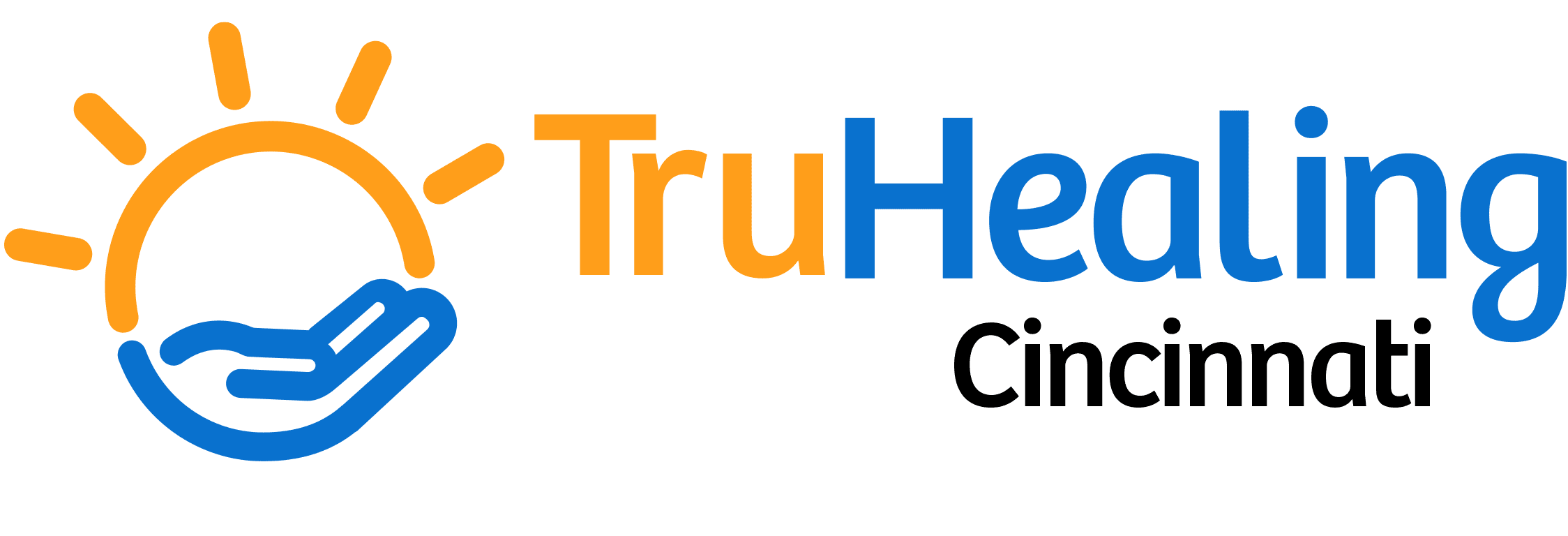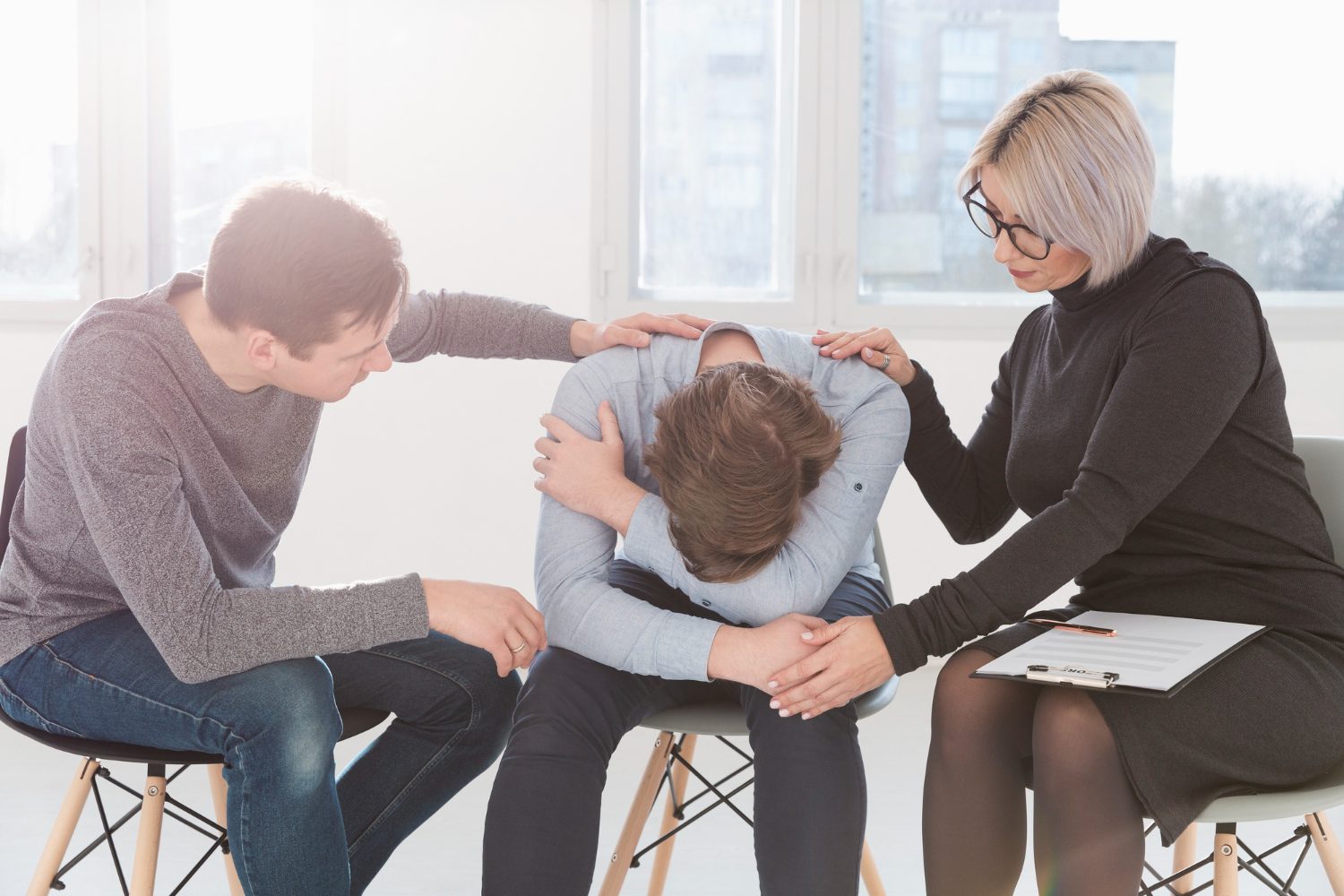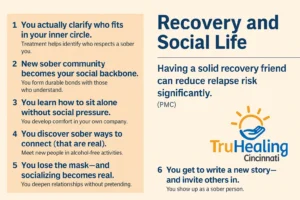I remember thinking: If I go into residential treatment, I’ll never have fun again. I’ll be sidelined from everything I used to love. I worried I’d come out with no friends, no connection, and no social life.
But the opposite happened.
Yes, I sacrificed some nights out and some old routines. But what I gained was a social life rooted in truth, depth, and people who wanted me, not my drinking.
If you’re young, sober, and scared about losing your social world because of treatment, here are six real reasons your social life can come back—even stronger.
1. You Actually Clarify Who Fits in Your Inner Circle
Before treatment, I had a lot of so‑called “friends.” Mostly, they were drinking buddies or people I tolerated in certain states. I rarely asked whether they built me up—or allowed me to be sober.
Residential treatment forced a pause. No weekend parties, no “spur of the moment” invites. That silence forced me to look at people differently: Who’s safe? Who respects a sober me? Who asks hard questions rather than drink with me?
That clarity meant reconstruction. Some people dropped away. Some stepped forward. I ended up with fewer people—but with ones who could breathe the same air I did after giving up substances.
2. New Sober Community Becomes Your Social Backbone
Inside a residential treatment program, you live in community with people who understand what’s happening under the skin. You share meals, therapy sessions, group nights, whispered fears in the hallway. You laugh when someone says something absurd. You comfort someone who’s triggered.
Those people become social anchors. They stay in your phone. You text check-ins. You invite them out for coffee after graduation. They become your real “post‑drinking friends.”
In my experience, the friendships I made there are more durable than many old ones. Because they remember when I couldn’t stand myself—and still stayed in proximity.
3. You Learn How to Sit Alone Without Social Pressure
One of the biggest fears coming into treatment was isolation: Will I be lonely forever?
In residential life, there were times you’ll be alone with your thoughts. No distraction. No drink. Just you and a journal, or a walk, or a quiet moment.
You learn that being alone doesn’t have to mean lonely. You practice comfort in your own company without needing noise. That skill becomes social armor when you re-enter life—you don’t panic when there’s a lull, a pause, or quiet moments at gatherings.
When social expectations arise, you’re less driven by fear of silence. You own your space.
4. You Discover Sober Ways to CONNECT (That Are Real)
Before, “fun” meant drinking, partying, late nights, chaos. After, I realized connection doesn’t have to hide behind alcohol.
Inside the program, I tried art classes, group hikes, meditation, music circles, storytelling nights, board games. These things felt strange at first—but they stick. When you leave, those become parts of your social identity.
I began inviting friends to sober movie nights, game nights, brunches, hikes, open mic nights. Those weren’t “lesser” social events—they were better because I showed up awake.
Alcohol doesn’t have the monopoly on social activity. Sober life gives you permission to try different textures of connection you never tasted before.
5. You Lose the Mask—and Socializing Becomes Real
When you’re sober in the same old social world, you start to see how superficial many relationships were. The jokes, the drinking prompts, the hangovers—they hid real communication.
After residential treatment, I stopped pretending. I stopped masking—“I’m fine,” when I wasn’t. I started speaking truth. I noticed people who still liked me even if I said no to drinks. I recognized who misunderstood, who judged, who retreated—and who truly stayed.
Social life changed from performance to reality. And in that shift, connection deepens. People who stick around learn more about you than your drinking ever revealed.
6. You Get to Write a New Story—and Invite Others In
The powerful truth: residential treatment didn’t end my social life—it rewrote it. It gave me the editorial control to decide who and how I want to live, laugh, and relate.
I got to decide:
- which friendships carry forward
- which interests I’ll pursue
- which triggers I’ll avoid
- how I’ll show up as a sober person
Because sobriety is now part of my narrative—not the footnote. When people come into my world now, they enter through truth, not alcohol. That draws people who want to stay.
Real Talk: The Hard Parts (So You Know It’s Not Magic)
To be fair:
- Some people drifted away. That’s normal.
- I felt awkward at first—going from “party friend” to “sober friend.”
- There were nights I wondered if anyone remembered me.
- I lost some invitations to things I used to be part of.
But in time? Invitations shift. Real ones show up. And when a friend messaged “sober movie night?” it felt like an invitation not despite sobriety—but because of it.
Why Your Social Life Matters for Recovery (Research Speaks)
Social support is more than comforting—it’s a predictor of staying sober.
Having even one solid recovery friend can reduce relapse risk significantly. (PMC)
Community keeps you tethered—to hope, accountability, growth.
Also: connection enhances emotional health, reduces isolation, and strengthens relapse resistance. (Twin Lakes Recovery Center)
You don’t do this in isolation. Social life doesn’t go away—you upgrade it.
FAQs: Young People & Social Life After Residential Treatment
Will I ever get invited out again?
Yes. Some invitations fade because people don’t understand sobriety. But you’ll attract new ones. And those that matter will reach out when they see you changing.
Do I have to explain my treatment to everyone?
No. You can choose what you share. You might say, “I did something intense to rebuild myself,” or “I’m living differently now.” You don’t owe anyone a full story.
How do I say “no thanks” without awkwardness?
Practice a simple response: “Thanks for the invite, I’m not drinking now, but I’d love to hang in another way.” Then shift the focus. (Bowen Health)
What if my old crew doesn’t understand?
That’s okay. Not everyone will. Some may never. That doesn’t mean you lose value. You build new connections. You invest where respect lives.
Is social life outside treatment possible in nearby areas?
Absolutely. Even if you’re in Cincinnati treatment or looking for support in nearby regions like Lawrenceburg, Kentucky or Lexington, Kentucky, you can build sober networks locally. Meetup groups, recovery events, community classes—they’re real.
Going into a residential treatment program didn’t kill my social life. It refined it—purged noise, clarifies relationships, built resilience, and let me invite people into my world as I truly am.
If you’re young and sober, maybe you’re watching peers, social expectations, fear of “boringness” creep in. But know this: your social world can survive. It can flourish. It can become more honest, more sustainable, more beautiful than you ever expected.
Call (888) 643-9118 or visit our residential programming page to see how you can rebuild your life—and social world—around sobriety, not in spite of it.


